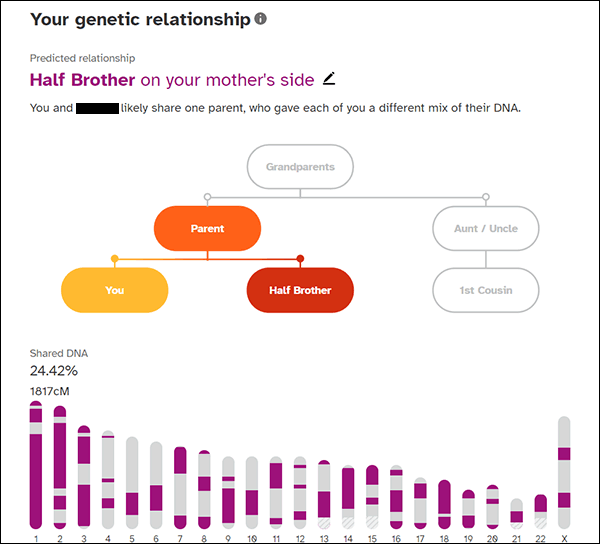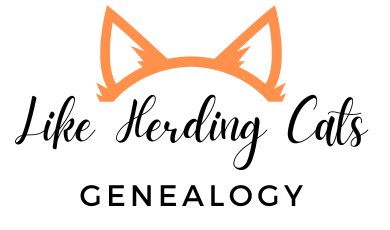Free Falling
I stared down at my iPad and started to shake looking at the 23andMe comparison between my brother and me.
Estimated relationship: Half-sibling
What does it feel like to discover that you aren’t really your Dad’s child? It felt like I had been punched in the stomach and while I struggled to catch my breath, an imaginary trap door in the floor opened up and I fell down through it, free-falling. I felt hot and dizzy. Disoriented. There was a pit in my stomach that felt like it was on fire.
I journaled this later as I thought back on that night. Multiple scenarios were going through my head, trying to justify what was staring me in the face.
Mistake. Obviously a mess up.
I’m obviously reading this wrong and I don’t understand all of this stuff. My brother probably contaminated his sample in some way and it messed up the results.

Then the panic starting creeping up in me. It was the most helpless and out of control feeling I’ve ever experienced.
I stayed awake the rest of the night trying to learn about DNA and what a centimorgan meant. Keep in mind, this was 2015 and DNA was a shiny new genealogy tool for family tree researchers like me. I was fascinated with the ethnicity part of it and how it lined up with my paper trail (I thought). But that was about it. I wasn’t even the slightest bit interested in the science behind it all. There weren’t any one-stop genealogy sites yet where you could plug in some numbers and find out what that number meant like you can now. I must have tried every possible combination of the phrase, “What does sharing 1817 centimorgans mean?” on Google over the next few days.
The panic grew to a point I felt sick that night, I remember. I was quickly overwhelmed trying to understand what these numbers meant. What was a segment? What did that double helix image mean? I couldn’t find an answer that I clearly understood. Everything I found online was like a mini-science lecture. Sometime during the night, I told myself I couldn’t share this with anyone until I had all my facts together and knew if this was real.

But in all honesty – looking back on that moment years later – I knew on some core level it could possibly be true. That it wasn’t so crazy. I don’t know why. But as quickly as that thought came into my head back then, I think I pushed it right back out into the deepest part of my brain so that I wouldn’t have to look at it again. I just blocked out it was even there. Because I couldn’t face the possibility that I wasn’t Dad’s daughter. I would never be able to accept that.
Every day going forward I carried this with me. I compartmentalized the heck out of this. I went to work, I did everything I normally do. But almost every day I searched for a glimmer of hope that the science was wrong. It took me 18 months to say the words out loud to my husband for the first time –that Dad wasn’t my father. I had to fully accept that it was true.
This is my NPE story of discovering in 2015 that my Dad was not my biological Dad. If you’d like to follow along, I encourage you start at my first post of the series HERE.

They say you should always have tissues handy when you get your DNA results — just in case. This same scenario happened to a colleague in my local genealogy group — and she had a reaction similar to yours. The silver lining, though, was that she eventually located and met up with a group of older half-siblings she didn’t know about. I guess the best advice on DNA is be prepared for the unexpected.
Hi Molly, thanks for sharing that story. It’s a strange thing that being an NPE we are so similar, but our results can be so different at the end of the journey. I’m so happy to hear she had a good outcome! You are definitely right in telling people to be prepared for the unexpected. Thanks for reading.
You learned your father is not who you always believed him to be. But your dad was and still is your dad. He’s the one who raised you, nurtured you, provided for you. He worried about you when you were I’ll and glowed with pride at your accomplishments.
DNA testing significantly and cruelly lacks the social week component that helps put results into perspective and offers support if necessary
Hi Christine, thank you for your thoughts and your words of encouragement. I’ll say that it is very complicated, to say the least, what our feelings are when we learn this. Validation of those complicated feelings is important to help us move forward and heal. But for all of us who I’ve known that are going through this, the core feeling is that our love for our Dad never waivered, so you are so very right in that sense. Thank you for reading my journey so far!
A very emotional and from-the-heart account of what you found out and how it affected you–thank you for bringing readers along on your life-changing journey of discovery.
Thank you for coming along for my journey, Marian 🙂
Everything you’ve shared here about your NPE experience is so familiar…the disorientation, the denial, the compartmentalization, all the conflicting emotions that are all true at the same time. Our origin stories are often taken for granted but what lies beneath for so many of us is so much more complicated than most could ever imagine. I’ve been so grateful to learn that I’m not alone on this journey and am equally grateful that you’re sharing your story here for us all to read.
Hi Melissa, you completely get it! It’s so difficult to make others understand who haven’t experienced it like you and I have. You are definitely not alone and I’m grateful as well to hear other stories of other experiences. I hope you are doing ok with it all. Thanks so much for reading.
Can’t wait to follow more of your journey! Thanks for sharing your deepest feelings about this discovery; more people need to hear this to help them on their own journey! And, you ARE your Dad’s daughter. 🙂
Thank you, Diane, for your support! 🙂
What an unforeseen emotional roller-coaster and toll that DNA results can sometimes perpetuate. I have a few in my family that have found siblings that they didn’t know they had, and they’ve described their feelings to be much the same. Thank you for sharing your heart-felt story and allowing us to come with you on your journey! Blood doesn’t always make a father — you will always be his daughter!
Thank you, Kaila, for your support. The fact that you have family members who have experienced this, you have an idea of what we are saying. Thanks for reading my journey so far 🙂
Was it the test results alone that made you think that you were the odd one out??